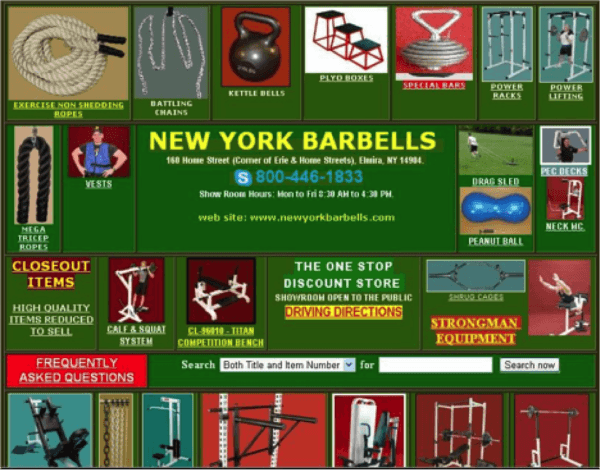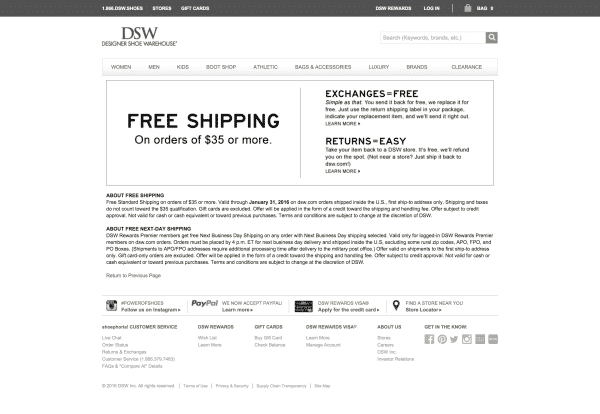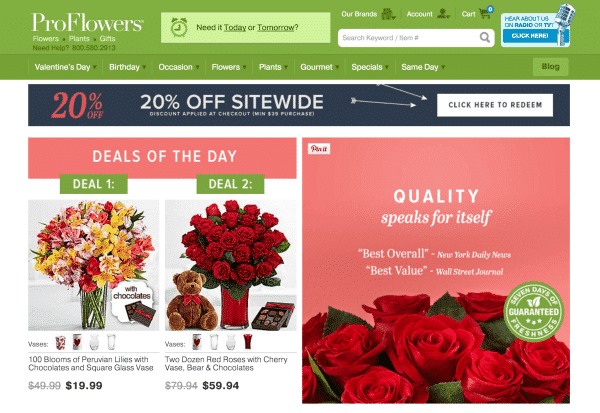by Matt Ellis • February 9, 2016
3 Ways to Build Customer Trust in an Online Marketing Campaign
In the world of digital marketing, it’s easy to get fixated on producing sales.
After all, the ultimate goal of all your goals, measurements, PPC/SEO efforts and everything is to put more money in the bank—it’s kind of hard to run a business on KPIs.
As a result, we all tend to focus on answering the question, “How do I get my target audience to buy from me?”
Sometimes, however, focusing on selling actually hurts your ability to sell.

With that in mind, let’s discuss a slight different, but equally important question, “How do we get our audience to trust us with their personal information?”
Every online transaction requires your customer to give up some bit of sensitive information, even if it’s as simple as an email address that customers don’t want shared with the world.
Add to that the fact that your company is one of dozens—if not hundreds—of companies asking for that information, the key to marketing success is to win the trust of your potential clients.
So, to endear yourself to your visitors, here are 3 ways to increase trust with your audience:
1. Don’t Cause Extra Anxiety
Sometimes we just want to shout about our services from the highest mountaintop around. We’ve got killer discounts, free shipping, and what we have to offer is the best you can find!
If we can just get that information out, they have to buy from you, right?
Not necessarily.
In my days in sales, I lost many a prospect when I focused on what I thought was a sweet benefit.
Browsing through search results looking for something can cause a certain amount of stress anxiety in and of itself. When we try to squeeze all that information in front of a visitor, it causes extra anxiety because they now have that much more information to process.
Additionally, since most people are afraid of being scammed, pages like this tend to create a lot of extra anxiety:

Put aside, for the moment, that it looks like this site hasn’t been updated this century. There is far too much information overloading the customer and the value proposition gets completely lost in all the noise.
This page gives the idea that this company isn’t sure what they do best and don’t really know what advantage (if any) they have over the competition, so they are basically shooting from the hip.
If the proprietors of a website don’t seem to have a firm grasp on their own value, what’s the customer supposed to think?
Given that you generally have less than 8 seconds to convince a visitor that they’re in the right place, I would guess that more people than not are clicking the back button when they hit this page.
Instead, if you want to make people stick around, you need to…
2. Validate the Customer
People making their way to your site have an issue that needs to be solved. Before they can trust you and your services they need to know that you at least claim to be offering the solution they are looking for.
Try using your headline to call attention to their problem before throwing “deals, deals, deals!” at them. For example, shoebuy.com uses their headline to ease any anxiety or stress: “We’ve got winter covered.”
They still have deals and coupons readily available, but they know that a lot of people are looking for good winter shoes, so they validate that concern right off the bat.
Alternatively, you can combine the two as shown by DSW.com on their free shipping landing page.

The hero layout even looks like a coupon. But, not only are they saving the customer money, they offer easy returns and exchanges too.
That certainly goes a long way toward easing my mind, and I’m sure I’m not the only one that would feel that way. I’m now more inclined to click around in that nav bar to find some good deals on new shoes.
3. Use Trust Signals
Trust signals are already common practice when it comes to creating compelling landing pages, but these are typically limited to logos — partner companies, awards/certifications, etc.
However, things such as reviews and contact information also help to build trust in the eyes of the visitors.
If you’re displaying multiple reviews next to a particular product, don’t automatically think that you can only show the most positive, glowing reviews as many customers actually become skeptical when they see that.
Sometimes, it’s not an entirely bad thing to include a middling review—one that is positive overall, but points out a small flaw or point of mild dissatisfaction.
Consumers these days are well aware that nothing is perfect, so they expect to see these—in fact, not having some sort of criticism of your company or product may actually increase skepticism.
So, don’t be afraid to show some honest reviews.
If you do have logos or awards to use as trust signals, huddling them together in one corner of the page may not be the best practice. Instead, you might try an approach like this proflowers.com landing page:

Not only are their trust signals large and immediately apparent, they are interspersed with the products in the list.
This reinforces that—not only are you buying flowers—but you’re getting the best flower service out there!

Conclusion
Now, I’ve given you some good examples of what online marketers are doing to endear themselves to their customers—but nothing is one-size-fits-all in the digital universe.
The first step you can take to increase the trust that visitors have in your site is to understand your specific audience, whether through testing, surveys, analytics, etc.
Like I learned back in my sales days: once I put effort into building trust and working for what the customer needs (rather than word-vomiting my super awesome deal all over them) I began to see the money rolling in.
If you’d like any help building customer trust, let us know here or in the comments! We’d love to give you a hand.
How have you seen a focus on building trust affect your online marketing campaigns? Are there any points you’d add to this list?






